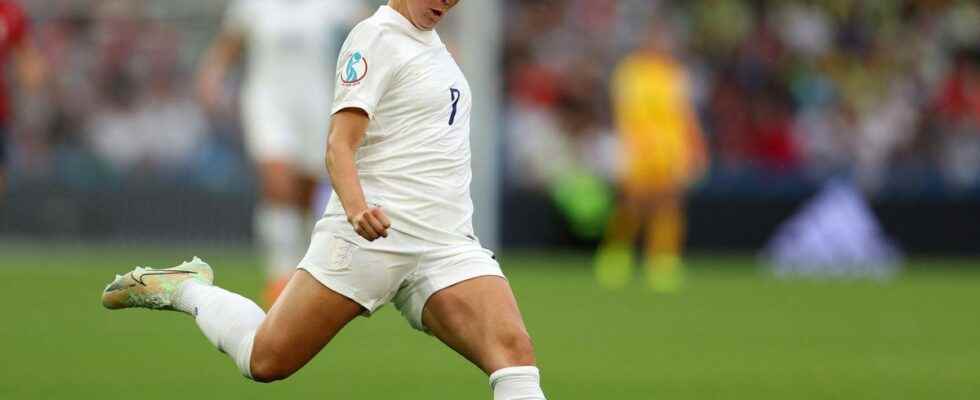Published on
Updated
Reading 2 mins.
Among high-level sportswomen, the floor is freed up around equipment and performance during menstrual cycles. This physiological specificity of women is moreover taken into account, both in terms of sports results and mental and physical well-being.
“It’s very good to have an all-white outfit, but it’s not necessarily suitable when we have our period. We try to manage it as we can”. On the sidelines of the Women’s Football Euro which is currently taking place, the English players are taking part in another fight. By this statement made by the striker of the “Lionesses” Beth Mead during an interview given to the Telegraph, they ask Nike, which equips them, to no longer make white shorts. A request supported by many players, in particular the captain of the France team (also equipped by Nike), Wendie Renard.
“You can play sports during your period”. This refrain, Dr. Carole Maitre, Gynecologist-sports doctor at INSEP, repeats it tirelessly. “For team or individual sports practitioners, outfits have evolved over the past twenty years., says Dr. Carole Maitre. Among the notable advances, we can note the menstrual panties or the cups which ensure more comfort and safety during the activity.
“The majority of problematic cases are menstrual cycles with pathology”Explain the author of the INSEP guide, “High-level sportswomen: cycles, periods, contraception and performance”. In the case of heavy periods, the specialist recommends not to underestimate their impact on fatigue and the risk of anemia due to iron deficiency. “But the rules should not mean stopping the sportshe reassures. It is better to limit endurance efforts and focus on muscle building, technique or doing split training.
Sport: an ally to alleviate period-related disorders
In case of mild or moderate pain, the practice of sport can mitigate the effects. This phenomenon is linked to the secretion by the brain of beta endorphin, proteins that promote the feeling of well-being and increase the pain sensitivity threshold. Be careful however, it has no effect on severe pain.
Other symptoms due to the premenstrual period, abnormal fatigue, a depressive tendency or even a “lack of drive”, which affects 27% of sportswomen, according to a study conducted by Carole Maitre in 2011. “So many disorders that a sporting activity can alleviate”she recalls.
In some athletes, the practice can lead to a reduction in the duration of the menstrual cycle. For this, the activity must be intense, regular and lead to a reduction in energy availability. The mass of fat then decreases and results in a deficiency in carbohydrates and lipids. At this moment, “the body slows down the activity of reproduction to preserve energy”, explains Dr. Carole Maitre. It is particularly seen in individual sports that require little mass, such as triathletes.
